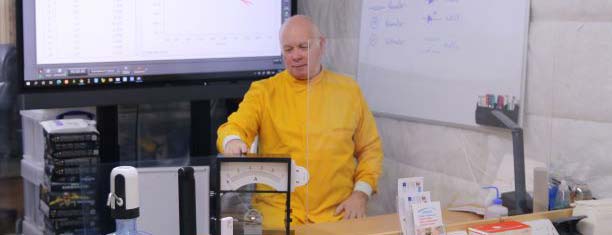Friday 10 March 2023
Mendel and Genetics
I find this one of the hardest topics to teach because of the lack of practical work. Sure we can do some genetics at GCSE but it takes so much time and theory is so much better when based on some practical work. #ScienceEducation
Thursday 9 March 2023
Integrating parametric Functions
Teaching students how to integrate parametric functions using Desmos and Casio CG50 to display graphs and help them visualize. #MathEducation #ParametricFunctions #Desmos #CasioCG50
Wednesday 8 March 2023
From black powder to beautiful blue crystals
Why I enjoy teaching Chemistry so much. Taking a black powder and making some beautiful blue crystals of Copper Sulfate
Tuesday 7 March 2023
Simple refraction in a glass
Watch an arrow bend in a glass with and without water! It's amazing to see the look of disbelief when students realize it's not magic, just refraction. Optics can be both fun and fascinating!
Monday 6 March 2023
Teaching Maths online
Maths teaching is a breeze online, unlike Science. Using Zoom we can handle large numbers of students and explain how to solve Mathematical problems, creating a Plan for solving each problem faced.
Sunday 5 March 2023
Seeing what I look like inside using an app
Saturday 4 March 2023
Chemistry Experiment Practice
Chemistry practical work is essential for several reasons:
Reinforcement of theoretical concepts: Practical work provides students with a hands-on experience that reinforces theoretical concepts taught in the classroom. It helps students to visualize and understand complex chemical phenomena that they might not fully grasp through theoretical explanations alone.
Development of laboratory skills: Practical work enables students to develop essential laboratory skills, such as accurate measurement, observation, recording of data, and analysis. These skills are transferable to other scientific disciplines and are highly valued in the workplace.
Safety awareness: Chemistry practical work emphasizes the importance of safety protocols and encourages safe working practices, which are crucial in preventing accidents in the laboratory.
Preparation for future studies and careers: Chemistry practical work prepares students for higher education and careers in the sciences, as it allows them to experience scientific research and experimentation first-hand.
Assessment of student learning: Practical work is an essential component of chemistry assessments, as it allows students to demonstrate their understanding and application of theoretical concepts in a practical setting. This assessment form also provides teachers with a valuable tool for evaluating students' laboratory skills and ability to work independently.
A level computing 12 Mark questions
Practice planning the 12-mark A-level computing questions. It is not just about getting the facts down but also about organizing them effect...

-
Negative feedback is a difficult concept to try and get over so I tried using a balance board and the @pascoscientific smart cart strapped...
-
Getting a classic set of results for the titration of NaOH and HCl is not that difficult but it is nice when we can get students to this ...
-
Reactions with the different Alcohols to see the change in rate and water for comparison and why not to react with acids. An extra experime...


















